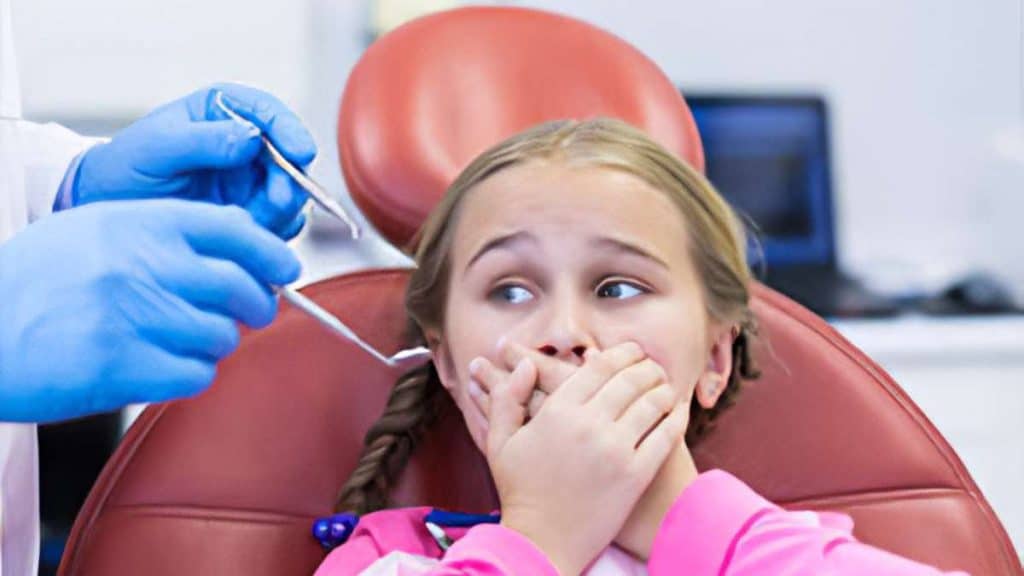Dental anxiety is a common experience that many people grapple with, often stemming from early encounters with the dentist’s chair. Have you ever wondered why some folks break into a cold sweat at the mere mention of a dental appointment? Well, it turns out that our childhood experiences play a significant role in shaping our adult fears, particularly when it comes to dental care. Let’s take a closer look at how childhood trauma can lay the foundation for adult dental anxiety.
Understanding Childhood Trauma and Dental Fear
Let’s start by defining our terms. Dental fear and anxiety aren’t just about feeling a little nervous before a check-up; they can be paralysing emotions that make it challenging to even step foot in a dentist’s office. Now, imagine being a child experiencing these emotions for the first time. Childhood is a formative period where our minds are like sponges, absorbing every experience and forming connections that can last a lifetime.
Psychological Mechanisms Behind the Formation of Dental Fear
So, how exactly does childhood trauma translate into adult dental anxiety? It all boils down to psychology. One theory, known as conditioning, suggests that we develop associations between stimuli and emotions. For example, if a child experiences pain or discomfort during a dental procedure, they may come to associate the dentist’s office with fear and apprehension.
Factors Contributing to Childhood Dental Trauma
Unfortunately, not all dental experiences are sunshine and rainbows, especially for children. Paediatric dental practices have come a long way in recent years, but there are still instances where kids may encounter pain, discomfort, or even indifference from dental professionals. Imagine being a child, feeling scared and vulnerable, only to have your concerns dismissed or ignored by the very people who are supposed to help you feel at ease.
Long-term Consequences: How Childhood Trauma Manifests in Adult Dental Anxiety
As children grow into adults, the effects of childhood trauma can linger, manifesting in various ways. Negative associations with dental care may persist, leading to avoidance behaviours or even outright dental phobia. This can have serious consequences for oral health, as individuals may avoid seeking necessary treatment due to fear and anxiety. The best thing to do is find a dentist who understands your trauma. For example, visit smilecliniq.com and find out about how their team can help you get the treatment you need, but in an accommodating and understanding way.
Tips for Relaxing at the Dentist
Do you get worked up when you’re at the dentist? You can be sitting in the waiting room shaking, struggling to communicate with the team and generally feeling like this is the worst place in the world. Always know that dentists are here to help you. They don’t want to cause you pain or discomfort. Indeed, appointments can be scary if you’ve been through terrible experiences in the past. But, there are tactics you can try to help you relax for your next visit. Let’s take a look at what you can do to make yourself feel better.
Learn About the Dentist
What you don’t want to do is choose a dentist on a whim. You won’t know anything about them or have details that allow them to be trustworthy. Often, nerves and fear come from the unknown. So, the first thing you should do is learn about the dentist. Read about their experience, look at their photos and understand what type of person they are. This can help you feel better about appointments and until you can speak to them directly. Therefore, use the internet to your advantage.
Look at the Opening Times
Sometimes, you can feel stressed before you get to the dentist. For example, if you’re having to rush to the office afterwards or take time off from your busy schedule, the whole experience can be a hassle and one that puts you on edge. So, the solution is to search for a dentist that has good opening times. In particular, they’ll open in the evenings and at weekends, which gives you more options. You can choose a time when you’re more relaxed.
Ask for Dental Sedation
Sometimes, you feel like no matter what you try, nothing is going to take away your fear of the dentist. In this case, make sure you don’t delay your appointment. Instead, know that some private dentists will offer dental sedation. This is a remedy that can help anybody who feels too nervous to go ahead with treatment. It will allow your body and mind to relax, and while you’re awake for the treatment, you won’t be able to connect with your nerves like before. Many patients say that it helps them relax and feel tired, which allows them to forget about the treatment.
Conclusion
In conclusion, childhood trauma can have a profound impact on our adult lives, particularly when it comes to dental anxiety. By understanding the psychological mechanisms at play and addressing the root causes of childhood trauma, we can work towards alleviating adult dental fear and promoting better oral health outcomes for all. So, the next time you find yourself feeling anxious about a trip to the dentist, remember that you’re not alone, and there are steps we can take to overcome these fears together.
